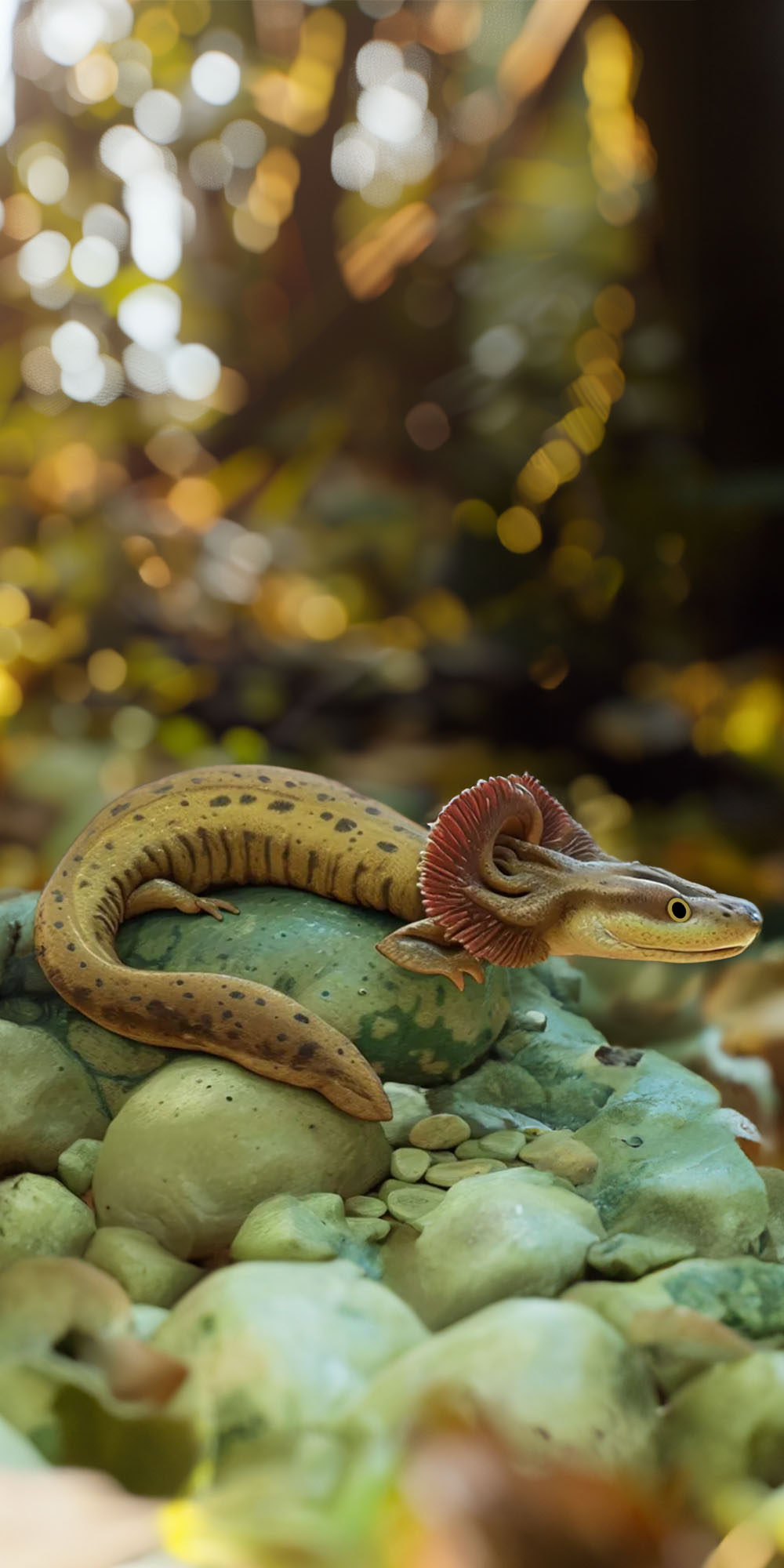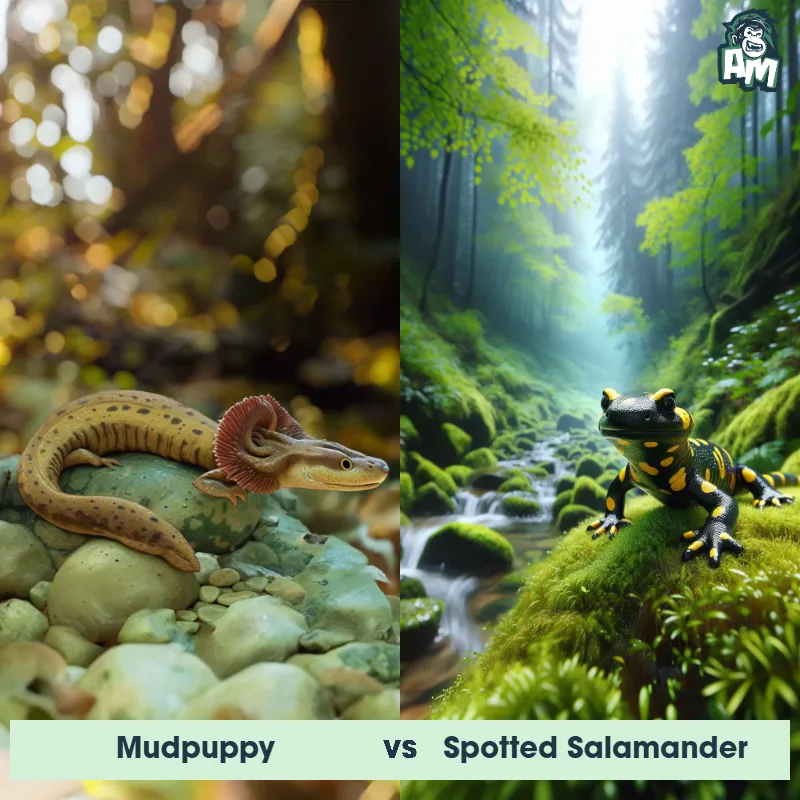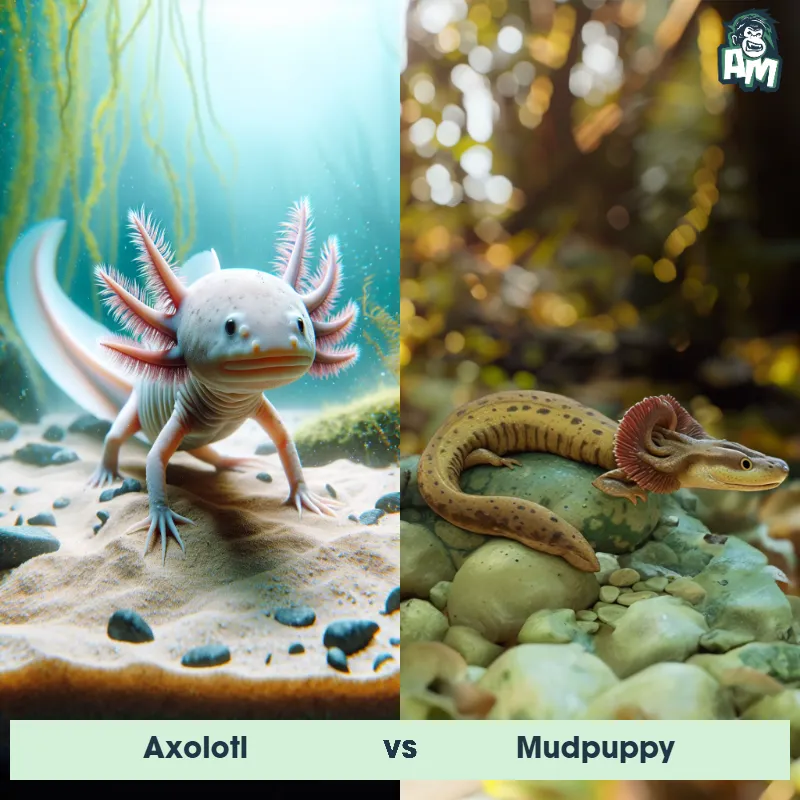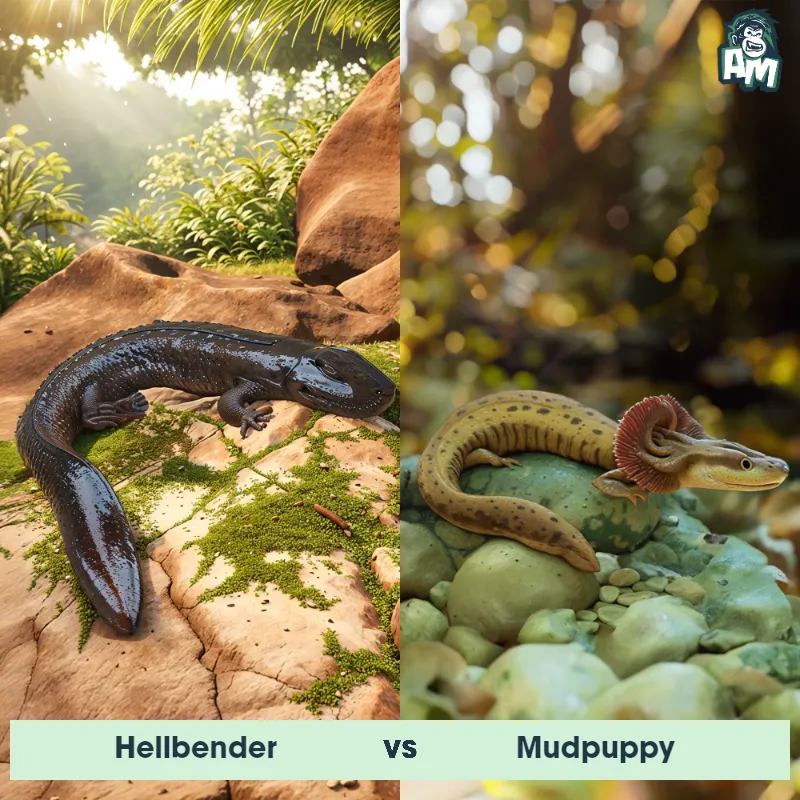The Mudpuppy
The Mudpuppy, also known as the Eastern Hellbender, is a species of aquatic salamander found in North America. They have a slimy, mottled skin that ranges in color from brown to grey. Mudpuppies have small, beady eyes, gill slits for breathing underwater, and four tiny legs. They are primarily nocturnal and feed on aquatic invertebrates.

| Mudpuppy | |
|---|---|
| Size | 13-16 inches (33-41 cm) |
| Weight | 6-18 ounces (170-510 grams) |
| Speed | 25 mph (40 km/h) |
| Key Strength | Strong grip and bite |
| Biggest Weakness | Vulnerable to drying out on land |
| Scientific Name | Necturus maculosus |
| Family | Proteidae |
| Habitat | Aquatic environments, such as rivers, lakes, and streams |
| Geography | North America |
| Diet | Carnivorous, feeding on insects, crustaceans, small fish, and aquatic invertebrates |
| Lifespan | 12 years - 20 years |

The Mudpuppy
The Mudpuppy, also known as the Eastern Hellbender, is a species of aquatic salamander found in North America. They have a slimy, mottled skin that ranges in color from brown to grey. Mudpuppies have small, beady eyes, gill slits for breathing underwater, and four tiny legs. They are primarily nocturnal and feed on aquatic invertebrates.
Fun Fact: Mudpuppies are one of the few salamander species that are entirely aquatic and do not undergo metamorphosis from a larval to adult stage.
| Mudpuppy | |
|---|---|
| Size | 13-16 inches (33-41 cm) |
| Weight | 6-18 ounces (170-510 grams) |
| Speed | 25 mph (40 km/h) |
| Key Strength | Strong grip and bite |
| Biggest Weakness | Vulnerable to drying out on land |
| Scientific Name | Necturus maculosus |
| Family | Proteidae |
| Habitat | Aquatic environments, such as rivers, lakes, and streams |
| Geography | North America |
| Diet | Carnivorous, feeding on insects, crustaceans, small fish, and aquatic invertebrates |
| Lifespan | 12 years - 20 years |
Mudpuppy Matchups
We use AI to simulate matchups between the Mudpuppy and other animals. Our simulation considers size, strength, and natural predatory behaviors to determine the most likely outcome.

Can't find the Matchup you want?
Create Your Own MatchupMudpuppy: Diet, Predators, Aggression, and Defensive Behaviors
What do Mudpuppies eat?
Mudpuppies are primarily carnivorous and feed on a variety of aquatic prey such as small fish, insects, crustaceans, mollusks, and worms. They are known to be opportunistic feeders and will eat whatever they can catch in their freshwater habitats.
Do Mudpuppies have any predators?
Mudpuppies have several natural predators in their environment, including larger fish, turtles, birds of prey, and mammals such as raccoons and otters. They are also occasionally targeted by humans for use as fishing bait or for collection as pets.
Are Mudpuppies aggressive?
Mudpuppies are not typically considered aggressive towards other animals or humans. They are generally shy and prefer to avoid confrontations. However, they may become defensive if threatened or handled roughly.
Do Mudpuppies fight?
Mudpuppies are not known to engage in physical fights with other animals unless they feel threatened and need to defend themselves. Their main strategy is to avoid conflict through camouflage and hiding in their aquatic habitats.
How do Mudpuppies defend themselves?
Mudpuppies have several defense mechanisms to protect themselves from predators. They can release a mild toxin through their skin when threatened, which acts as a deterrent to potential predators. They may also use their camouflage abilities to blend in with their surroundings and avoid being detected.
What is the biggest weakness of Mudpuppies in a fight?
The biggest weakness of Mudpuppies in a fight is their relatively small size and lack of physical weapons. They do not have sharp teeth or claws to defend themselves, so they rely on their toxin secretion and camouflage to deter predators. If they are unable to escape or hide, they may be at a disadvantage in a physical confrontation.
Fun Fact: Mudpuppies are known to regenerate lost body parts, including limbs, tails, and even parts of their internal organs.
Fun Fact: Despite their somewhat intimidating appearance, Mudpuppies are harmless and rarely bite humans unless provoked.













